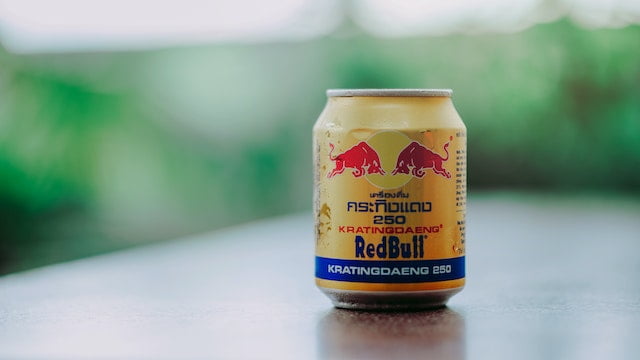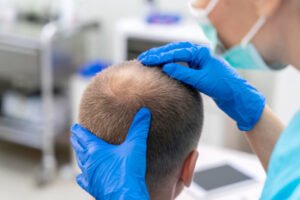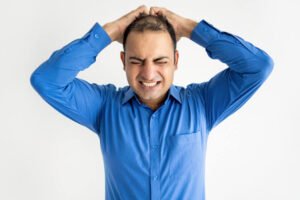Introduction
Energy drinks have become ubiquitous companions in our fast-paced lives, offering a jolt of vitality during crunch moments. Yet, beneath the effervescent allure of these beverages, a persistent question looms: Can energy drinks actually cause hair loss? We’re delving deep into this concern to unearth the truth behind the claims.
The Controversy Surrounding Energy Drinks
From bustling offices to bustling gyms, energy drinks seem to hold a spot in every setting. Their vibrant cans promise a quick surge of energy, making them alluring companions for long nights and grueling workouts. However, recent studies have ignited a debate about the potential relationship between energy drinks and hair loss. Is it a mere coincidence or a cause for genuine concern?
Unpacking the Study: Fact or Fiction?
A study conducted by experts from Tsinghua University in Beijing casts a spotlight on this issue. This study, spanning 1,000 men, aimed to determine whether there’s a connection between energy drink consumption and hair loss. The results left many raising their eyebrows: individuals consuming over one sweetened drink per day were confronted with a staggering 42% increased risk of hair loss compared to those who abstained.
The Culprits in the Can: What’s Inside Energy Drinks
Energy drinks are more than just flavorful concoctions. They pack a punch with a blend of ingredients like sugar, caffeine, vitamins, herbal additives, and amino acids. These elements aren’t just random; they play pivotal roles in hair growth and gene expression. Picture the hair follicle cells as athletes preparing for a race; they demand a well-balanced diet rich in nutrients to perform at their best.
The Catch: Side Effects and Hidden Risks
Excessive energy drink consumption isn’t just about staying awake—it can lead to unintended consequences. The study highlights the potential toxicity of certain elements, particularly caffeine and selenium. Surpassing the recommended thresholds for these substances can trigger adverse effects, potentially leading to alopecia areata—a hair loss condition. It’s akin to a silent landmine in a seemingly innocent can.
The Bittersweet Relationship with Sugar
Sugar, often the unsung hero behind the energy drink’s sweet allure, carries its own baggage. These beverages, loaded with various sugar types, bring more than just momentary satisfaction. Overindulgence can unleash a cascade of health issues, from obesity to diabetes. Imagine excessive sugar consumption as a ticking time bomb, silently wreaking havoc within.
A Study’s Revelation: Correlation vs. Causation
The Tsinghua University study doesn’t just focus on energy drinks; it explores broader dietary patterns. The research delves into fast food consumption, vegetable intake, and even anxiety levels. A rhetorical question emerges: could anxiety be exacerbating the hair loss risk? Moreover, a correlation is unveiled between diets high in energy drinks and hair loss, leaving room for further exploration.
Striking a Balance: Nutrition for Hair Health
Amid the energy drink debate, one fact remains crystal clear: hair health demands a balanced diet. Hair follicle cells, akin to a demanding athlete, require a consistent supply of nutrients. Think of them as the engine of a high-performance car; to run optimally, they need nothing short of premium fuel. The parallel becomes evident: a well-fed body cultivates thriving hair.
Combating Baldness: Beyond Energy Drinks
For those already grappling with hair loss, potential solutions emerge: Minoxidil, Finasteride, and Hair Transplantation. These options offer varying degrees of effectiveness, but they aren’t without potential drawbacks. It’s like choosing between different paths up a mountain; each has its obstacles and rewards. But knowledge empowers—links to trustworthy sources provide deeper insights.
Insights from a Dermatologist
Expert advice adds weight to the conversation. Dermatologist Dr. Sharon Wong underscores the importance of natural, gentle hair care. Her wisdom echoes like a beacon, guiding us away from harsh treatments and towards nourishing solutions. It’s akin to opting for a soothing balm over abrasive tools.
Personal Choices, Lasting Impact
As the debate rages on, one truth remains: personal choices shape our outcomes. The interconnectedness of diet, lifestyle, and mental health becomes glaringly evident. It’s like tending to a garden; thoughtful nurturing leads to a blossoming outcome. Each choice, whether embracing a nutrient-rich diet or managing stress, plays a role in the preservation of hair health.
Conclusion
In the realm of energy drinks and hair loss, the narrative is nuanced. The study from Tsinghua University paves the way for discussions and introspection. While energy drinks alone might not be the sole culprit, they shine a spotlight on the broader tapestry of dietary and lifestyle choices. In our quest for vitality, let’s remember that our hair, like any other facet of health, thrives on mindful attention.
Disclaimer: The information provided in this article is for informational purposes only and should not be considered as medical advice. Always consult with a qualified healthcare professional before making any decisions regarding your health or treatments. For more information, please read our Medical Disclaimer.
Frequently Asked Questions:
- Are Energy Drinks a Potential Cause of Hair Loss?
There’s growing concern about the connection between excessive energy drink consumption and hair loss. Studies suggest a potential link, especially in men who consume sweetened beverages regularly. - What’s the Role of Ingredients in Energy Drinks?
Energy drinks contain a mix of elements like sugar, caffeine, vitamins, and amino acids. While these play roles in promoting hair growth, overconsumption can have unintended consequences on overall health, including hair health. - Can Too Much Sugar in Energy Drinks Impact Hair Health?
Yes, the sugar content in energy drinks can be a factor. Excessive sugar consumption is associated with various health issues, and this also extends to potential hair loss risks due to its influence on hormones and overall well-being. - How Does Anxiety Relate to Hair Loss and Energy Drinks?
Recent research indicates a correlation between anxiety levels and hair loss risk. While energy drinks might not directly cause anxiety, their consumption, especially in combination with other factors, could contribute to the overall risk of hair lo - What Solutions Exist to Combat Hair Loss?
Solutions range from hair growth treatments like Minoxidil and Finasteride to surgical options like hair transplantation. Each option has its benefits and potential side effects, making it important to consult with professionals before making a decision.




